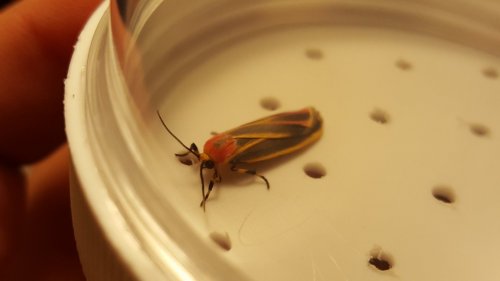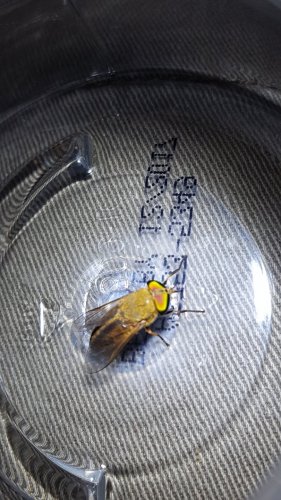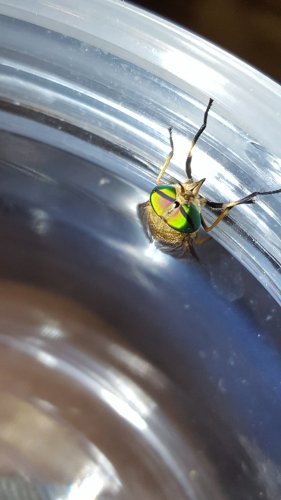trickedoutbiker
Avid Member
So I'm at my parent's house out in the countryside where I grew up. I now live in a big city but I am at my parent's house for the weekend to visit and to attend a few grad parties over the weekend. Anyways, the reason I mention this is because there are 4 acres that are now my playground. A huge field, a pond, a bunch of yard... and it's all pesticide free! So I brought a BUTTLOAD of containers to catch a bunch of wild insects for my chameleon and really give him variety like he has never had before. Now I'm not sure how many insects I will be posting on this thread but I'm sure there will be lots. My night has just began. I'm catching night insects right now and I'm coming across some interesting moths at the moment. As I catch things, I am Googling info to see if they are poisonous in any way. If I can't find FOR SURE info, I'm going to post the insects here for input. This will go on through the next 24 hours probably, as I will be catching daytime insects come tomorrow too.
SO, we begin with the first insect I'm unsure of here... the Painted Lichen Moth, Hypoprepia Fucosa
https://en.m.wikipedia.org/wiki/Hypoprepia_fucosa

The larvae feed on lichen, algae and moss on trees. That doesn't sound bad but I can't find any info on possible toxicity. Anyone got a clue? As I find more insects I'm unsure of I will add more and ask. I search on Google to identify it or what I believe to be it and do a search on here as well before asking. I will provide a picture of what I caught, as well as a link to where I tried to identify it online. Any help on any/all questions is greatly appreciated. Thanks.
SO, we begin with the first insect I'm unsure of here... the Painted Lichen Moth, Hypoprepia Fucosa
https://en.m.wikipedia.org/wiki/Hypoprepia_fucosa

The larvae feed on lichen, algae and moss on trees. That doesn't sound bad but I can't find any info on possible toxicity. Anyone got a clue? As I find more insects I'm unsure of I will add more and ask. I search on Google to identify it or what I believe to be it and do a search on here as well before asking. I will provide a picture of what I caught, as well as a link to where I tried to identify it online. Any help on any/all questions is greatly appreciated. Thanks.
Last edited:










